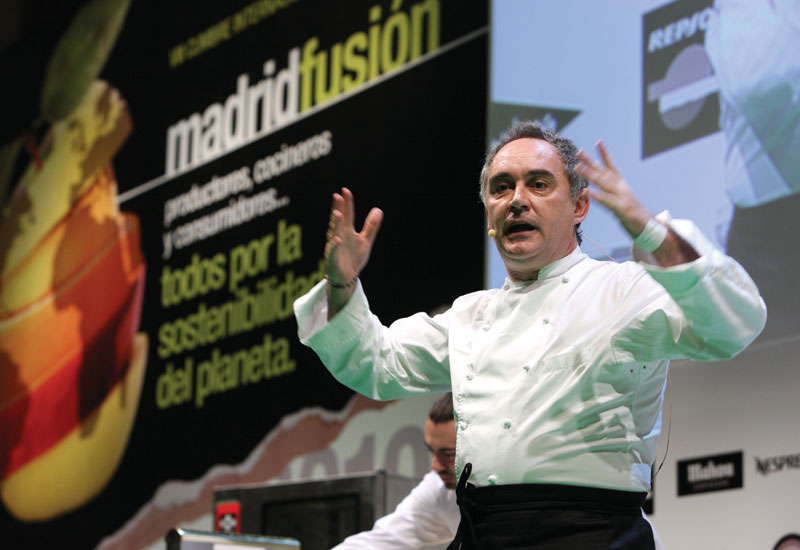Madrid Fusion returned for another packed edition full of innovative ideas this year, but the importance of sharing new culinary concepts took a back seat to more pressing matters
Following a year of upheaval and enforced adaptation for the global F&B industry, Madrid Fusion gave chefs plenty to think about during the 2010 edition of the leading Spanish gastronomy showcase.
While culinary innovation remained a focus, underlying themes of sustainability and survival ran through this year’s exhibition.
“It is difficult at the moment,” noted Grant Achatz, owner and head chef of contemporary Chicago restaurant Alinea. “There is a huge risk in allowing your outlet to become too contrived for the customer.”
Achatz, whose restaurant is positioned at the cutting edge of gastronomy, added: “I try to see most of the demonstrations here, as it helps you stay current and figure out what’s going on in the culinary world.”
Meanwhile Ferran Adrià, who used the event to announce the temporary closure of his world-famous restaurant El Bulli, said while the global financial crisis had been “hard for everyone in the restaurant industry”, he was optimistic about the future.
“I believe there is still room for many people to develop their culinary ideas and open new restaurants,” he asserted. “When we opened back in 1983 there were only one or two three-Michelin-star restaurants in Spain; look at the industry now and you realise that the 1982 recession had a massive effect on Spanish cuisine.”
Even the biggest name at the show, Alain Ducasse, admitted 2009 had been tough.

Advertisement
“It has not been an easy year,” he observed. “But what’s important is to not to change your ways — lower your prices, but never lower the quality.”
Ducasse also used his position as a keynote speaker to emphasise that culinary figures could play a role in ensuring sustainability.
“Nowadays chefs are lucky in that the media is interested in them, so we all have a role to play in regards to encouraging sustainability in the industry,” he asserted.
Alinea’s Achatz added: “If you are a chef and not environmentally responsible in terms of sourcing products, then you are simply not doing your job.”
Changing priorities
In a new format, each day of the 2010 edition focused on a different topic — all of which nodded towards the harsher economic climate.
The first day considered the future of haute cuisine, the second day focused on ecological and sustainable cuisine, and the third reviewed ‘gastro-economy’.
Despite the changed tone of the show, Alinea’s Achatz, returning for his second year, told Caterer Middle East the event was every bit as busy as the previous year.









 Search our database of more than 2,700 industry companies
Search our database of more than 2,700 industry companies









